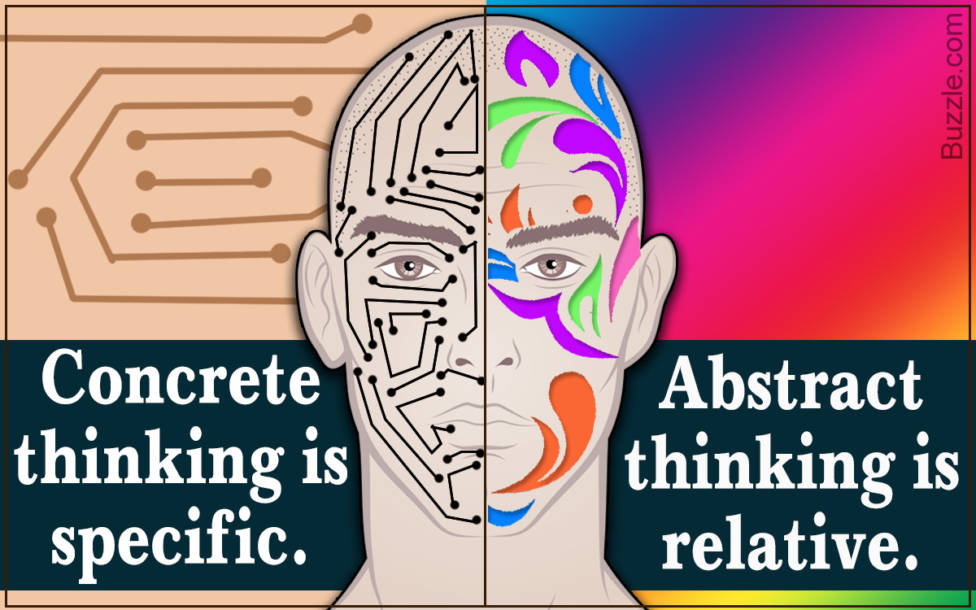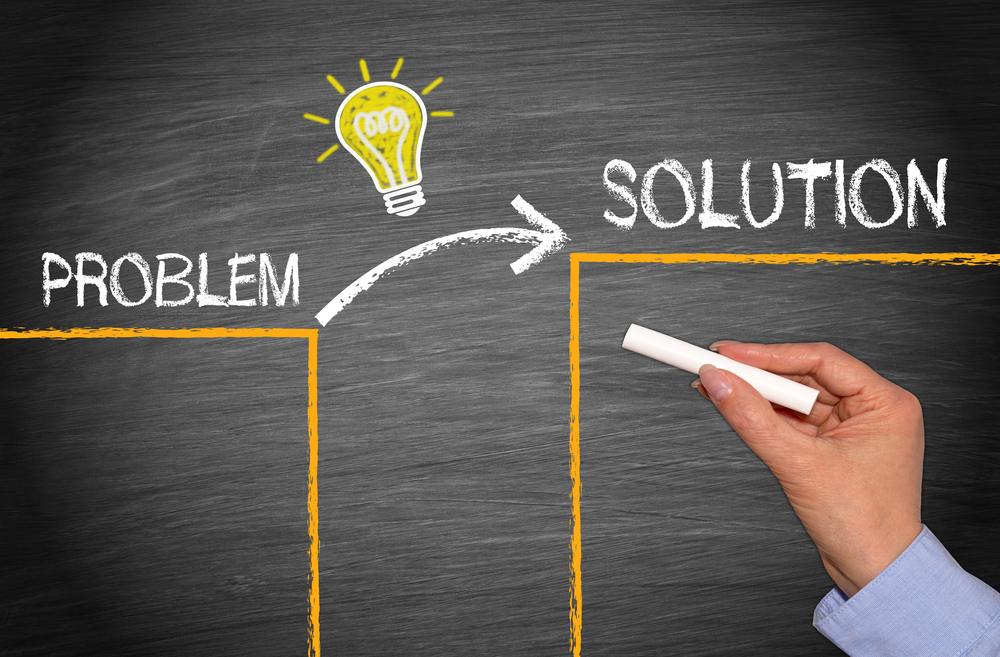There is a movie on Netflix called: The Sea Beast The plot is about hunters who kill giant sea beasts. These animals used to stalk the shores of a town. As a consequence, the hunters have set out to exterminate them to protect the kingdom.
Those who dedicate themselves to fighting these horrifying beings are considered warriors and heroes. When a hunter dies doing his job they say that he “died a hero.” They exalt themselves before their exploits and slaughters. “Every hunter dies a great death because every hunter lives a great life.”
The whole film is about how this whole idea that some are monsters and others are heroes is dismantled. In the end the protagonist manages to change her narrative and comments:

“Our books, our history, is a lie. I don't believe the beasts ever threatened our shores. It was just a story. A story told by them! (she points to the kings of her kingdom). For generations, they taught us to hate the beasts and they sent the hunters out to destroy them. And the beasts learned to fear us and hate us... AND THEY FOUGHT BACK! […] “I come from a long line of hunters who died YOUR great death! (she points to the kings), your kingdom was paid for with their blood! (she points to the hunters) and THEIR blood! (she points to the monsters).”
When it is achieved to give a different description to the facts, war stops. They stop the attack against the largest beast of all - which lay wounded at the gates of the kingdom - and it returns to the sea...
Just before the end of the film, the protagonist changes the phrase “die a great death” to: “I'm going to live a great life”.
And that is what this article is about. I will explain to you how by changing our description of the world and what happens to us, we can live better.
Let me tell you a story…
A few days ago I was talking to a friend about the importance of rest. As she mentioned the changes she had made in her life, she commented that she felt calm in stressful situations. That being with little work or rest caused her discomfort and stress.
I asked her why and we started talking about it... I discovered that in response to the sensations of relaxation and rest she said a phrase to herself: "I'm wasting my time." This description of the situation generated stress and modified her behavior. So she was looking to occupy herself with something productive.
This seemingly simple thought left her restless and chronically stressed. It wasn't for lack of time to rest. The problem was, she had associated feelings of relaxation with the idea of wasting time. This idea, at the same time, was associated with feelings of stress. Because of this, when she felt calm, she became stressed.
If my hypothesis is correct. Her stress response is automated. The will or the desire to want to feel calm does not influence. For this reason, it is not only important that she knows the origin of the problem. The essential thing is that she creates an opposite association.
Psychologists call this type of associative learning learning by classical conditioning. It is very common when we experience anxiety. Knowing the learning process is important to know how to reverse the association, but that is a topic for another article.
Relaxation vs stress
It is worth clarifying that it is physically impossible to be calm and stressed at the same time. Each of these states is experienced separately. The systems responsible for activating or relaxing us are different. The sympathetic nervous system is responsible for activating us and the parasympathetic nervous system is responsible for relaxing us. When one is activated the other is turned off and vice versa.
So in reality my friend was always stressed, even though she felt “calm” in the face of stress. Was this description accurate to the real event? We might think so, if her goal was to be productive. But the reality is that no.
For our body to function properly and stay healthy we need to be in a state of relaxation most of the time. This allows us to respond better in moments of alert or high level of activity. When we stay in a chronic state of activation we become like a crashed computer. So in the end you are less productive.
The most superficial consequence of chronic stress is to be less productive. Negative effects range from sadness and fatigue to gastrointestinal disorders, hair loss, thyroid problems, alteration of the menstrual cycle, problems falling asleep, panic attacks, anxiety, depression, failures in attention and memory, isolation and a long etc.
It's incredible how one thought can have so many effects... This is why it is important to keep several things in mind:
Describe what is happening to you
The first thing is that we must try to describe the facts to ourselves in the most concrete way possible. The more creative we are when interpreting what happens to us, the more likely we are to get lost.

Have you ever heard the songs that soldiers sing while they are training? “May the day of my death the eyes of my mother and those of my family not be filled with tears but with pride and glory”… “I know that we were born to die and I choose to die in my style”… “towards the underworld with my trot I'm happy”… Phrases similar to those of the hunters in the Netflix movie.
This is the opposite of a concrete description of the facts. If they described their actions concretely, no one would go to war. In fact, a few years ago I saw a video that sarcastically recreated the training of some American soldiers. These soldiers marched and sang the following:

"Gave up my girlfriend and my family. Traded them in for an M16. Afghanistan Pakistan Yemen Irak. I don't care if I ever come back. From poor families how far we roam. So the rich kids can just stay at home. When I come home with PTSD. The VA hospital won't care for me. I'll probably end up homeless out in the dark. To get played on screen by Marky Mark"
As motivational words they serve very little. But, it is a story closer to reality than the usual songs... At the end of the video only one soldier remains singing, the others have left. We could imagine that they regained their sanity, woke up from the illusion or better said from the nightmare in which violence is glorified as a solution to problems and returned to their girlfriends and their families.
This is not something new at all. In the First and Second World Wars, young people were so enthusiastic about going to kill themselves that everyone in a class or the entire group of friends enlisted, thinking that going to war was like going on an adventure.
The speech can make us see very horrible realities with eyes of desire and a beautiful life with eyes of weariness and boredom. Wars are not epic stories, they are carnage. The trenches in the First World War were holes with mud, rats, epidemics, dirt and death as Diana Uribe, 2024 says.
Being specific implies, for example, that by losing my job, I am not going to write a thesis about the unfairness of the situation. About how bad I must be to have been fired. Or about how impossible it will be to find a new job. If I keep it specific: I was fired for X. I can focus my time, thoughts and efforts on looking for a new job.
When I keep thinking about a situation. Trying to tell me a whole scenario about: why did it happen? What is going to happen to me from now on? Will I be able to handle this? Why do I feel so bad? etc. We can be as creative as someone who writes literature, but what about this? That words are not as empty as we imagine. They are usually associated with specific emotions and this emotional addition can lead us to anxiety or depression... This brings us to the second important element.
Do not judge
The words that most often have a negative emotional charge are: judgments. Avoiding making judgments about others and ourselves is the easiest way to get rid of unnecessary discomfort.

As a general rule, judgments tend to be incorrect and exacerbate our emotions: “such a stupid”, “I'm a fool”, “what a shitty day”, “motherfucker”. We think they are just words but the reality is that they have a real effect on our lives and how we perceive our own experiences.
They are harmful when we say them to ourselves. They are harmful when told to us by someone else. Also, when we are the ones who judge our partner, friends, children or whoever. On social media or face to face.
Lazy, unconscious, intelligent, skillful, weak, strong, bossy, annoying, stupid, relaxed. It is better to leave judgments aside and start describing things to ourselves in the most concrete way possible.
Instead of calling yourself lazy, describe what happened. Example: Today I had to work 5 hours and I worked 3. I had to wash the dishes and I didn't do it. The same with the others. Example: X did not make the meal that he said he was going to prepare, he commented that he did not have time. My partner left the towel on the bed today.
Positive judgments also tend to be erroneous or exaggerated. As an example, the soldiers and hunters who glorify their actions.
When we use them to flatter or show affection, they are not usually harmful. We can also enjoy them in literature and poetry... Their negative consequences come when we use them to not recognize our mistakes or to try to escape negative emotions.
Accept emotions
Describing the facts in a concrete way inevitably involves learning to accept emotions. This is our third element.

When I had just graduated from high school. I was in some acting courses while I was deciding which university major to choose... In one of these classes they gave us a script in which the scene implied that the character was a little confused and the dialogue had an order but was tangled.
One classmate forgot the script and got really confused. When the teacher asked him if he was lost. He argued eloquently that what he did was what he should do. That this way the role of appearing lost would look better... Although incredible, the whole class began to do the same.
I mean, forgetting the script and saying anything... I was amazed at his ability to make everyone believe such an idea and for the teacher to start congratulating the others when they forgot the script. I guess this was easier than accepting the shame of having been wrong.
When we do not recognize and accept our emotions, we are puppets and prey to them. Acceptance of emotions is essential to stop rumination. We call rumination that story in which we get lost and argue non-stop. Without reaching anything more than the increase of discomfort. It is often used curiously and uselessly in the long term, to escape and avoid unpleasant emotions.
Positive judgments such as: you are skilled, intelligent, perfect, superior can be used for the same purpose. The Second World War began because a town had been humiliated at the end of the First World War and was made to pay for the destruction of all of Europe. This ruined, humiliated and defeated country built a discourse of superior race to “recover” from shame. This idea was the basis of a world war that left 50 million dead.
Accept shame, humiliation, devaluation, sadness, accepting ourselves as human and capable of error and suffering is difficult, but escaping and avoiding that discomfort. it only increases it. We cannot run away from our emotions, we must accept them and wait for them to reduce naturally.
On a social level it doesn't work and on a personal level it doesn't work either. It diverts us from the path. It leaves us trapped in pain. Without energy and without time to look for solutions. This discomfort affects our ability to reason and that is why our fourth element is:
Doubt of thought
Question your thoughts. We usually take everything we think as true. We can call it intuition or hunch or “something tells me that…”, “I have the feeling that…”.

We are very good at reading non-verbal language. Gestures, postures, subtle changes in voice tones, inconsistencies between what a person says with his words and what he says with his gestures. All this information. Together with the other stimuli that arise in a situation. It helps us come to various interpretations.
We can feel when someone is lying to us. Intuit when something is said with a double meaning. Understand sarcasm, irony or even jokes. This ability is undoubtedly an advantage. We are social beings and understanding messages beyond their literal content helps us connect with others when they generate trust in us and distance ourselves from those who do not. I mean, it helps us survive.
But this advantage, like any other skill, is not perfect. We don't just take information from the environment. Each of us can react and interpret a situation differently. We see everything that happens to us according to our own history.
We will have had good and bad experiences. Our family and personal values will be different. Each of us has conditioned certain things as appetitive (what you like) and has learned to fear or avoid others (aversive stimuli - what you don't like).
You probably know someone who overreacts to certain words or situations. For one person, it can be horrible to be called lazy and for another to not care. We all have a word that causes us intense discomfort: stupid, crazy, relaxed, opportunist, liars, etc. Even if it is mentioned jokingly, outside of a discussion or using other words that refer to the same idea.
Add to all this the emotion you are experiencing at the moment. If you feel good and calm, you probably don't care about it. On the other hand, if you are angry or stressed, you might see it as an offense. The same thing happens when you are sad, you could use it to think that something is actually wrong with you, you are unlucky or nothing is going well for you, etc.
In the end, so many different stimuli come together when making an interpretation, that we inevitably make mistakes. For this reason, it is best not to believe too much of what we think when we are experiencing high-intensity negative emotions.
It's not about not thinking about things. Reasoning has helped us build better societies without a doubt. But like any tool, language and our ability to reflect on the world has two sides. It has helped us advance and led us to war.
Resultado de traducción By ignoring the effect of our narrative on our daily lives and on our history, we can end up down dark paths, full of pain and hopelessness.
In situations of intense discomfort, in fact, the brain's amygdala releases such large amounts of cortisol and adrenaline that it is as if it "intoxicates" us... They call it amygdala hijacking. We enter survival mode and our frontal cortex is inhibited. This is the area in charge of logical thinking and planning our actions.
Ahhh! No wonder the child was crying! A lot of heart and no head. Or a lot of cortisol, a lot of stress, a lot of anger or sadness. Put the phrase together however you like. In the end it means that you are so excited that your ability to think clearly is reduced.
Cool thinking works very well here. Literally… Wait! Wait as long as you need until you feel calmer. Then, being calmer, resume what happened, describe the event in a concrete way and... Let's go to our last element.
Focus on the solution
Beyond getting stuck in descriptions and explanations. It is better to focus on how we solve it. The world is NOT rosy, horrible things happen every day. It's not about starting to believe that I don't judge because I'm exaggerating or because everything is actually fine.

The purpose of changing our narrative is to: not to add more pain to pain.. Even in the worst situation. When we decide to stay with specific descriptions of the events. We can focus on other things that are more effective in the short and long term. Like the search for solutions and their implementation.
At a social level we have two great references. South Africa when it managed to end apartheid and Rwanda after the genocide. Both decided to put aside the path of pain, resentment and revenge. They knew that would only continue to destroy them. Instead, they chose to forgive and focused all their efforts on building a country where everyone fits, and they achieved it!
Have you ever thought about how much time you spend thinking about things? Just for the pleasure of winning a fight, justifying a mistake made or blaming yourself for things you can't change... I know people who have been carrying resentment and pain for years. Can you imagine everything you could achieve if you dedicated the same time to solving difficulties?
Remember something the sophists said:
There is no truth but repetition. A lie repeated many times ends up being believed as truth.
Similar articles https://mildredvilla.com/index.php/2024/02/16/a-moverse-estamos-hechos-para-movernos/
Return to main page https://mildredvilla.com
Netflix movie https://www.youtube.com/watch?v=gGRptgjtAkY
Historian Diana Uribe https://www.youtube.com/@DianaUribefm
Video of soldiers singing https://youtu.be/znfZnSRcaeY?si=jj4XJ0A5rITMiIGK






Leave a Reply